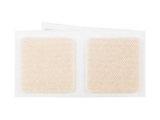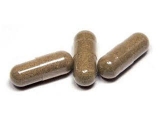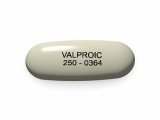Nus pharmacy vs pharmaceutical science
If you are considering a career in the field of pharmacy or pharmaceutical science, you may be facing a difficult decision - choosing between the National University of Singapore's (NUS) Pharmacy program and its Pharmaceutical Science program. Both programs offer unique opportunities and pathways for students interested in this field, and it is important to understand the differences between the two before making a decision.
The Pharmacy program at NUS is designed to train students to become pharmacists, who play a key role in patient healthcare. This program focuses on the study of drugs and their effects on the human body, as well as on the principles of pharmacy practice. Students in the Pharmacy program will learn about drug formulation, dosages, drug interactions, and patient counseling, among other important skills.
On the other hand, the Pharmaceutical Science program at NUS is more focused on the research and development aspects of the pharmaceutical industry. This program delves into the study of the physical and chemical properties of drugs, as well as drug formulation and delivery systems. Students in the Pharmaceutical Science program will gain a deep understanding of the drug development process, from the initial stages of discovery to clinical trials and commercialization.
Ultimately, the choice between the Pharmacy program and the Pharmaceutical Science program at NUS depends on your career goals and interests. If you are passionate about working directly with patients and providing healthcare services, the Pharmacy program may be the right fit for you. However, if you have a keen interest in the research and development of new drugs and therapies, the Pharmaceutical Science program may be more aligned with your career aspirations. Regardless of your choice, both programs at NUS will provide you with a comprehensive education and valuable skills for a successful career in the pharmaceutical industry.
Overview of NUS Pharmacy Program
NUS Pharmacy Program is a comprehensive and rigorous academic program offered by the National University of Singapore (NUS). It aims to equip students with the necessary knowledge and skills to pursue a career in the field of pharmacy.
Students in the NUS Pharmacy Program can expect to study a wide range of subjects related to pharmaceutical science and practice. These include courses in basic sciences such as biology, chemistry, and physiology, as well as more specialized topics like pharmacology, medicinal chemistry, and pharmacy practice.
One of the key features of the NUS Pharmacy Program is its emphasis on experiential learning. Students have the opportunity to gain practical experience through hands-on laboratory work, clinical placements, and internships. This allows them to apply their theoretical knowledge in real-world settings and develop important skills for their future career.
Furthermore, the NUS Pharmacy Program also offers a range of elective modules that allow students to tailor their education to their individual interests and career goals. These electives cover a wide range of topics, including drug discovery, pharmaceutical marketing, and pharmacy management.
Upon completion of the NUS Pharmacy Program, graduates are well-prepared to enter the workforce as registered pharmacists. They have the option to work in a variety of settings, including community pharmacies, hospitals, research laboratories, and pharmaceutical companies. Alternatively, they may choose to further their studies and pursue postgraduate degrees in fields such as clinical pharmacy, pharmacology, or pharmaceutical research.
Overview of Pharmaceutical Science Program
The Pharmaceutical Science program at NUS is designed to provide students with a comprehensive understanding of the development, manufacturing, and evaluation of pharmaceutical products.
During the program, students will gain a strong foundation in the basic sciences, including chemistry, biology, and physics. They will also learn about the different types of drugs and their mechanisms of action, as well as the various methods used in drug discovery and development.
In addition, students will have the opportunity to develop their research skills through laboratory work and independent projects. They will learn how to design and conduct experiments, collect and analyze data, and present their findings in a clear and concise manner.
The program also emphasizes the importance of ethics and professional responsibility in the pharmaceutical industry. Students will learn about the legal and regulatory framework that governs the development and marketing of drugs, as well as the ethical considerations involved in the conduct of clinical trials and the safeguarding of patient rights.
Upon completion of the program, graduates will be well-equipped to pursue a variety of career paths in the pharmaceutical industry, including research and development, quality control, regulatory affairs, and drug manufacturing. They will also have the necessary foundation to pursue further studies in fields such as pharmacology, medicinal chemistry, and pharmaceutical technology.
Curriculum Comparison: NUS Pharmacy vs Pharmaceutical Science
When deciding between studying pharmacy or pharmaceutical science at NUS, it is important to carefully consider the curriculum of each program. Both programs provide a solid foundation in the field of pharmaceuticals, but there are some key differences in the courses and opportunities offered.
NUS Pharmacy Curriculum
The NUS Pharmacy curriculum is designed to train students to become licensed pharmacists. The program includes a mix of foundational science courses, such as biology, chemistry, and pharmacology, as well as specialized pharmacy courses, such as pharmaceutics, pharmacotherapy, and pharmacy practice. Students will also have the opportunity to gain practical experience through internships and clinical placements.
Additionally, NUS Pharmacy offers a range of elective courses that allow students to explore different areas of pharmacy, such as pharmaceutical marketing, drug discovery, and pharmacy management. This flexibility in course selection enables students to tailor their education to their specific interests and career goals.
Pharmaceutical Science Curriculum
The Pharmaceutical Science curriculum at NUS focuses more on the scientific and research aspects of the pharmaceutical industry. Students will study core science courses, including chemistry, biochemistry, molecular biology, and pharmacology. They will also learn about drug development, pharmaceutical analysis, and pharmaceutical technology.
One of the highlights of the Pharmaceutical Science program is the opportunity for students to undertake a research project in their final year. This allows students to gain hands-on experience in conducting scientific research and provides valuable skills for those interested in pursuing a career in academic research or the pharmaceutical industry.
In summary, the NUS Pharmacy program is geared towards students who are interested in becoming licensed pharmacists and includes a mix of foundational science and specialized pharmacy courses. On the other hand, the Pharmaceutical Science program is more focused on the scientific and research aspects of the pharmaceutical industry. Ultimately, the choice between the two programs will depend on your career goals and interests within the field of pharmacy.
Career Paths and Opportunities for NUS Pharmacy Graduates
1. Community Pharmacist
One career path for NUS Pharmacy graduates is to become a community pharmacist. These professionals work in retail pharmacies and are responsible for dispensing medications, providing advice on dosage and potential side effects, and offering general healthcare advice to patients. They play a crucial role in ensuring the safe and effective use of medications by the public.
2. Hospital Pharmacist
Another career option for NUS Pharmacy graduates is working as a hospital pharmacist. In this role, pharmacists work within a hospital setting, collaborating with doctors and other healthcare professionals to ensure patients receive the appropriate medications. Hospital pharmacists may be involved in medication preparation, patient counseling, and conducting clinical trials to evaluate the effectiveness of certain drugs.
3. Regulatory Affairs Specialist
Pharmacy graduates can also pursue careers in the field of regulatory affairs. These professionals work for pharmaceutical companies and are responsible for ensuring that the company's products comply with regulations and standards set by regulatory authorities. They may be involved in preparing and submitting documentation for drug approvals, conducting compliance audits, and monitoring changes in regulations that may affect the company's products.
4. Pharmaceutical Researcher
For those interested in scientific research, a career as a pharmaceutical researcher may be a suitable choice. NUS Pharmacy graduates can work in research laboratories, conducting studies to develop new drugs or improve existing medications. They may focus on areas such as drug formulation, drug delivery systems, or pharmacokinetics, with the goal of advancing the field of pharmacy and improving patient outcomes.
5. Pharmaceutical Sales Representative
Pharmacy graduates who possess strong interpersonal and communication skills may consider becoming pharmaceutical sales representatives. These professionals work for pharmaceutical companies, promoting and selling their products to healthcare professionals such as doctors and pharmacists. They provide information on the benefits and usage of medications, answer any questions, and build relationships with potential clients.
6. Academic or Clinical Educator
With further education and advanced degrees, NUS Pharmacy graduates can pursue careers as academic or clinical educators. They can become professors at universities, teaching future pharmacists or participate in training programs for healthcare professionals. These roles involve sharing knowledge and expertise in pharmacy practice, pharmacology, and other related subjects, contributing to the education and development of future healthcare professionals.
Overall, NUS Pharmacy graduates have a wide range of career paths and opportunities available to them. Whether they choose to work in community pharmacies, hospitals, pharmaceutical companies, or academia, their expertise in pharmacy and pharmaceutical sciences opens doors to impactful and rewarding professional paths in the healthcare industry.
Career Paths and Opportunities for Pharmaceutical Science Graduates
Graduates with a degree in Pharmaceutical Science have a wide range of career paths and opportunities available to them. The pharmaceutical industry is a rapidly growing field with diverse job prospects. This degree provides graduates with the necessary knowledge and skills to work in various sectors of the industry.
One possible career path for Pharmaceutical Science graduates is in research and development. They can work in laboratories, conducting experiments and analyzing data to develop new drugs and medical treatments. This field requires strong analytical and problem-solving skills, as well as a deep understanding of the principles of drug development.
Regulatory affairs
Another career path is in the field of regulatory affairs, where graduates can work to ensure that pharmaceutical products meet government regulations and safety standards. This role involves working closely with regulatory agencies and staying up-to-date with the ever-changing regulations in the industry. Strong attention to detail and excellent communication skills are crucial for success in this field.
Quality control and assurance
Pharmaceutical Science graduates can also pursue careers in quality control and assurance. In this role, they are responsible for ensuring that drugs are manufactured and tested to meet quality standards. They may work in pharmaceutical manufacturing facilities, performing inspections and audits, or in laboratories, analyzing samples and conducting quality tests.
Furthermore, graduates can explore opportunities in pharmaceutical sales and marketing. They can work for pharmaceutical companies, promoting and selling drugs to healthcare professionals. This role requires excellent interpersonal and communication skills, as well as a deep understanding of the products and their benefits.
In conclusion, a degree in Pharmaceutical Science opens up a world of career opportunities in various sectors of the pharmaceutical industry. Graduates can choose from research and development, regulatory affairs, quality control and assurance, as well as sales and marketing. The industry offers a rewarding and fulfilling career path for those with a passion for science and medicine.
Choosing the Right Program: Factors to Consider
1. Personal Interests and Career Goals
One of the key factors to consider when choosing between NUS Pharmacy and Pharmaceutical Science programs is your personal interests and career goals. Both programs offer courses and opportunities that are tailored to different aspects of the pharmaceutical field. If you are interested in the clinical side of pharmacy and want to pursue a career as a pharmacist, the Pharmacy program might be a better fit for you. On the other hand, if you are interested in the research and development of new drugs, the Pharmaceutical Science program may align more with your career goals.
2. Curriculum and Course Structure
The curriculum and course structure of each program should also be considered in your decision-making process. Take a look at the courses offered in each program and the specific topics covered. Look into whether there are any specialized tracks or elective courses that align with your interests within the field. Consider the teaching methods and the ratio of practical to theoretical coursework. Some students thrive in a more hands-on learning environment, while others prefer a more traditional classroom approach.
3. Opportunities for Practical Experience
Another important factor to consider is the availability of practical experience opportunities. Look into whether both programs offer internships, clinical placements, or research opportunities. Practical experience is invaluable when it comes to gaining real-world skills and enhancing your resume. Consider the type of experience that is important to you and how both programs can support you in obtaining it.
4. Faculty and Research Opportunities
The faculty and research opportunities provided by each program can also play a significant role in your decision-making process. Look into the expertise and qualifications of the professors in each program. Consider the research projects and publications that are associated with each program. If you are interested in pursuing research or working closely with faculty members, it may be worth looking into which program offers more opportunities in these areas.
5. Networking and Industry Connections
Lastly, consider the networking and industry connections that each program provides. Look into whether there are events, workshops, or alumni networks that can help you build connections within the pharmaceutical industry. Consider the reputation and connections that each program has with employers, pharmaceutical companies, and professional organizations. These connections can be beneficial when it comes to securing internships, job opportunities, and furthering your career in the field.
Ultimately, choosing the right program between NUS Pharmacy and Pharmaceutical Science depends on your personal interests, career goals, and the factors that are most important to you. Take the time to thoroughly research and consider each program before making a decision. Speak with current students, alumni, and faculty members to gain insights and perspective. Remember, choosing the right program can set you on the path for a successful and fulfilling career in the pharmaceutical field.
Follow us on Twitter @Pharmaceuticals #Pharmacy
Subscribe on YouTube @PharmaceuticalsYouTube





Be the first to comment on "Nus pharmacy vs pharmaceutical science"